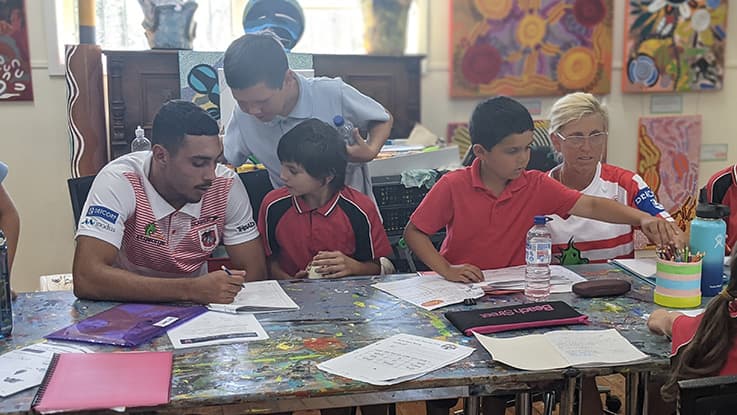
Addressing educational inequity through the national school reform agreement

We've been going backwards, probably because we had created this uneven playing field. We've got to level the playing field so that students can be guaranteed equity and excellence in their education regardless of where their local school is.
With the Expert Panel due to deliver its report on the latest National School Reform Agreement (NSRA) review, Review to Inform a Better and Fairer Education System, at the end of October The Smith Family CEO talks to Travers McLeod, Executive Director of the Brotherhood of St Laurence.
Brotherhood of St Laurence is a social justice organisation working to alleviate poverty. It partners with The Smith Family on a number of projects, most notably the Saver Plus financial education program.
Travers McLeod has an extensive background in policy, human rights and international relations.
The Smith Family CEO, Doug Taylor and Travers McLeod are both part of the Ministerial Reference Group providing advice to the Federal Education Minister in the review process.
In this, the latest in the series of conversations with prominent players in the sector Doug Taylor and Travers McLeod discuss why the NSRA review is so important, what the big levers are, how the review should link education and other community supports and what is needed to make any reforms effective.
Mr McLeod points out that school education is a $60 billion sector, supporting roughly four million students in Australia in nearly 10,000 schools.
But, he says, it’s not working for everyone.
“We know the learning gap between advantaged and disadvantaged students is widening. In 2008, it was about 1.4 years. Now it's 2.3 years,” he says.
“We're going backwards in literacy and numeracy and funding is still not flowing fairly.
“Many schools are still well below the National Schools resourcing standard, which we committed to through the Gonski reforms. There are many schools above it, so there's uneven playing field.
“And worst of all, school attendance is declining. Schools aren't always the safe, welcoming, inclusive environment they need to be, so students feel like they can belong and they can thrive.
“So, there is a lot of work to do if we are genuinely serious about equity and excellence in Australian schools.”
Mr McLeod sees three key factors in improving outcomes: reducing the concentration of disadvantage in schools through better and more targeted funding; ensuring a sustainable teaching workforce that reflects the diversity of the students; and treating student belonging, inclusion and well-being as being equally important as academic achievement.
Read more about the issues and The Smith Family’s submission to the review to Inform a Better and Fairer Education System.



